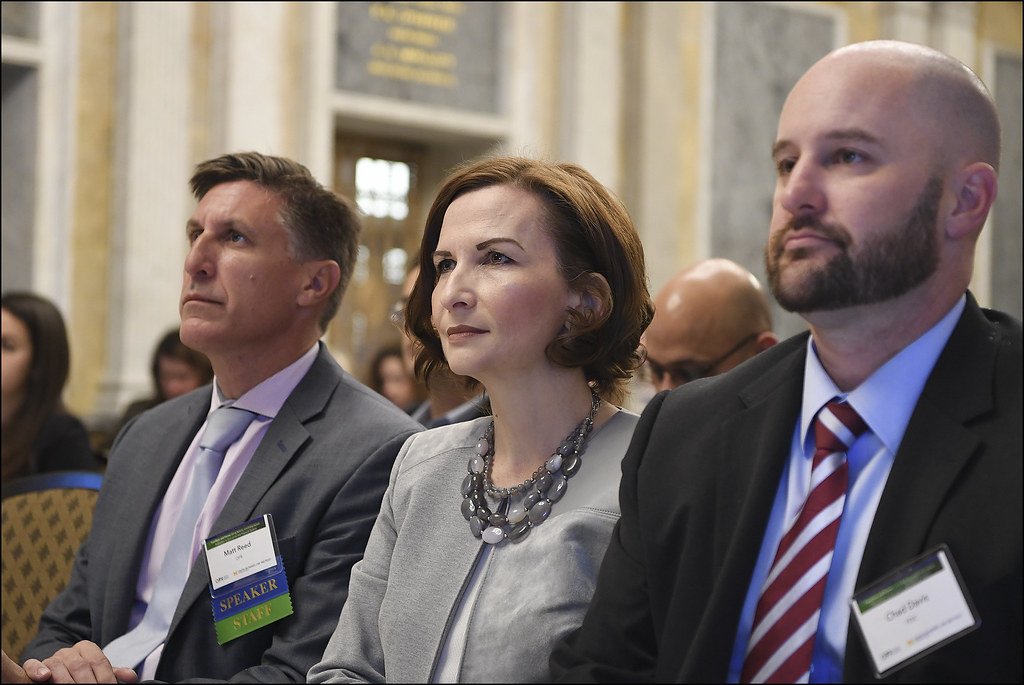FOR IMMEDIATE RELEASE
Contact: Max Moran, moran@therevolvingdoorproject.org
At the open session of the Federal Deposit Insurance Corporation’s meeting this morning, Directors Rohit Chopra and Martin Gruenberg attempted to insert their lawful vote to open a request for information (RFI) on possible updates to merger review rules into the official record. FDIC Chairman Jelena McWilliams declared this motion out of order, citing a decision made by the FDIC’s legal division.
The legal division’s general counsel is Nicholas Podsiadly, who until April 2019 was a lobbyist for Fifth Third Bancorp, according to his own biography with the Practising Law Institute. Until 2018, McWilliams was the Chief Legal Officer at Fifth Third. Onlookers can reasonably assume that McWilliams brought Podsiadly into the FDIC due to their prior work history, and that his first loyalty lies with her, not with the independent governance of the FDIC.
This morning, Director Chopra issued a lengthy statement indicating numerous interventions by the FDIC Legal Division in the course of the tumult over the RFI. According to Chopra, during his orientation, he was informed that the FDIC General Counsel — that is, Podsiadly — believed that “board members may not raise matters for discussion during board meetings, and that only the Chairperson has that right.” Moreover, again according to Chopra, “the General Counsel has taken the perplexing view that those board members cannot guarantee that any topics will actually be discussed.”
In other words, a former lobbyist working on behalf of McWilliams has now decided singlehandedly that McWilliams wields effective veto power over any proposal before the FDIC Board. As Chopra notes, this is unlawful: “the governing documents of the Corporation do authorize the Board to conduct business through written or ‘notational’ voting. Importantly, notational voting allows any member to direct any matter circulated for a vote to a board meeting, rather than finalizing it in writing.”
The following statement can be attributed to Jeff Hauser, Executive Director of the Revolving Door Project:
“Wall Street is using the revolving door to try to prevent basic law from being enforced. If the FDIC general counsel is loyal primarily to McWilliams, then his opinion can’t be taken as independent in this matter. This all started over an effort to finally bring the FDIC into compliance with the Dodd-Frank Act, which mandated the agency consider financial stability when weighing bank mergers. It isn’t surprising that a longtime cheerleader for bank consolidation like McWilliams is mounting a desperate effort to prevent this. But if she is allowed to get away with it, a dangerous new precedent will have been set, all but explicitly stating that democracy takes a back seat to the whims of Wall Street in our regulatory system.”
The day after she approved the merger between BB&T and SunTrust banks, creating the sixth-largest bank in the United States in the largest bank merger since the financial crisis, McWilliams personally congratulated the two banks’ CEOs and joked with them at a conference sponsored by a banking industry trade group. See video of the conference here.
###
PHOTO CREDIT: “Functions and Firms” by University of Michigan’s Ford School is licensed under CC BY-ND 2.0

